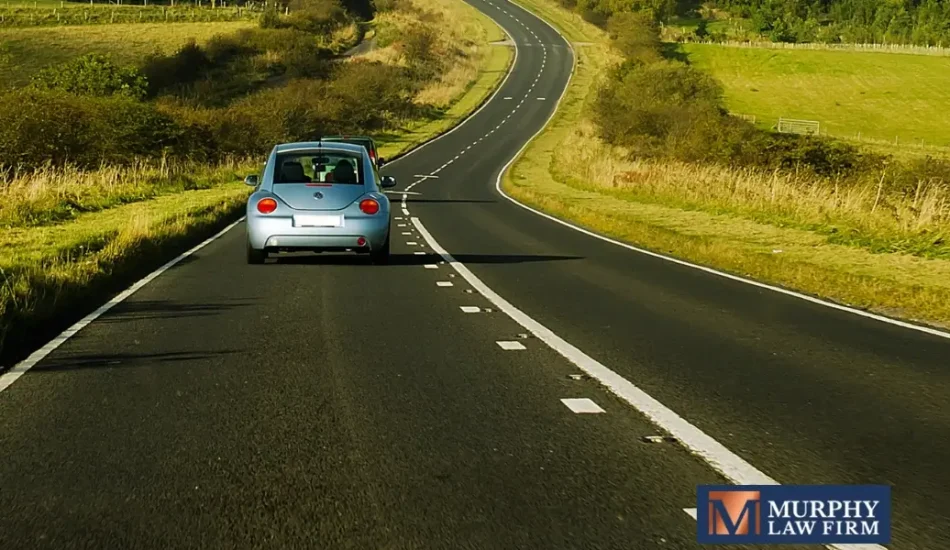Louisiana Right-of-Way Laws
News and Articles

One of the most important parts of driving is doing so in a safe manner. Louisiana right-of-way laws have a large role in keeping everyone safe by preventing accidents. Any failure to follow these rules is incredibly dangerous and can result in both criminal and civil cases being pressed against you. Learning more about these laws can help you drive more confidently and lower the risk of a collision.
General Right-of-Way Rules
The concept of “the right-of-way” is very important while driving, especially while at an intersection. These laws are spelled out in Louisiana to help traffic maintain order. In short, any driver has to yield the right-of-way if going forward would endanger the lives of others who are using the road. These could be other drivers, cyclists, and pedestrians.
If an intersection is not formally controlled by a traffic light, drivers have to yield to other vehicles that have arrived at the intersection before they did. If there is no clear indication of who arrived first, the vehicle on the right is usually given the right-of-way. This concept also applies to situations involving stop signs instead of traffic lights. If these rules are not followed, they can lead to serious accidents and severe consequences.
Unique Circumstances
There are some outliers in right-of-way laws, namely regarding emergency vehicles. Any emergency vehicle with their lights on should be given the right-of-way, including police cars, ambulances, and fire trucks. Unlike with other vehicles, drivers have to completely pull over or stop to make sure the emergency vehicle can pass with as few obstacles as possible.
Some of these vehicles have to pull over on the side of the road very quickly. Even if the vehicle is stopped, drivers still need to change lanes and slow down if they see the vehicle’s lights flashing. If a driver does not yield to an emergency vehicle, it can make it more difficult for staff to respond to emergencies in a timely manner, endangering the lives of others. Drivers might also face a traffic violation for failing to pull over for an emergency vehicle.
Another unique circumstance in Louisiana is the establishment of roundabouts. While they are becoming more popular, some people are unsure about how to navigate them. Any vehicle already in the circle of the roundabout has the right-of-way. When it is safe to enter the roundabout, outside vehicles can then do so.
Right-of-Way for Oncoming Traffic
In many scenarios, drivers must go from one road to another and merge with oncoming traffic. While they are often able to do so without a traffic light, they have to give the right-of-way to the traffic that’s already in motion before turning and merging. This especially applies to highways and other high-speed zones. It is more difficult for a vehicle moving at a high speed to slow down and stop for another vehicle, so the merging vehicle must yield.
If a driver is turning left at an intersection, they also always have to yield. This is also the case in an intersection without a traffic light or a flashing yellow arrow, which are common in many parts of Louisiana. It is important to remember to be patient and stay vigilant while attempting to make a left turn. These scenarios are some of the most common ways that people get into vehicle accidents, as they may collide with an oncoming vehicle.
FAQs
What Is the Right-of-Way Rule in Louisiana?
The right-of-way rule in Louisiana is meant to make sure that traffic operates in a safe manner, specifically at crossing points that could potentially lead to dangerous situations. If drivers are in a situation where they might experience a conflict with another driver or pedestrian, then they have to yield. This includes yielding to crosswalks, other vehicles in an intersection, and other traffic if they are trying to turn into a road with moving vehicles.
When Does a Driver Have to Yield the Right-of-Way at an Intersection in Louisiana?
A driver has to yield the right-of-way at an intersection in Louisiana in several circumstances. If the driver comes to a stop sign, they have to yield to vehicles that are going in the other direction or will be crossing at a time that could make turning hazardous. They also have to give the right-of-way if they come to a yield sign. Right-of-way applies to turns onto a main road. If there are vehicles coming from a main road, the driver on the lesser road must yield.
How Do Right-of-Way Laws Apply to Pedestrians and Crosswalks in Louisiana?
A: Right-of-way laws also apply to pedestrians and crosswalks in Louisiana. In general, pedestrians usually have the right-of-way, especially if they are in a marked crosswalk. They must also drive slower and be more alert in a school zone. That way, children can safely cross the street, even if they are distracted. Pedestrians also have the responsibility to be cautious, cross in marked areas, and look out for oncoming traffic.
How Does Louisiana Law Cover Four-Way Stops?
Louisiana law covers four-way stops in a particular order. If the driver comes to a four-way stop, they have to give the right-of-way to any other vehicle that arrives at the stop first. In cases where two vehicles arrive at roughly the same time, the rightmost vehicle normally has the right-of-way. Other intersections with traffic signs usually require the driver to yield as well. If the driver does not yield, it could lead to a collision with other vehicles that have the right-of-way.
Stay Safe on the Road
If Louisiana’s right-of-way laws are respected, then the roads become safer for everyone. Instead of worrying about who goes first, it’s important to protect the lives of others by helping travelers arrive safely. If you have been impacted by a vehicle that did not follow Louisiana’s right-of-way rules, schedule a consultation with Murphy Law Firm. We can recover damages and hold those who do not follow the law responsible for putting others at risk.



